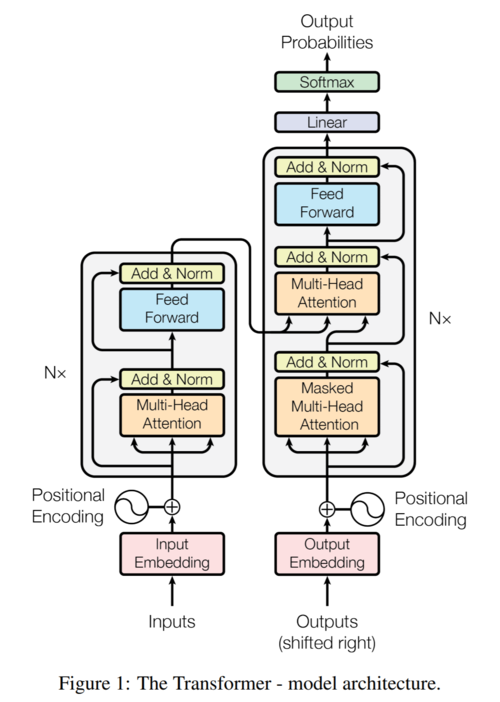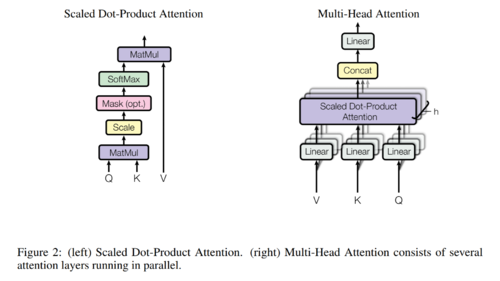Transformer (machine learning model): Difference between revisions
| Line 32: | Line 32: | ||
;Guides and explanations | ;Guides and explanations | ||
* [https://nlp.seas.harvard.edu/2018/04/03/attention.html The Annotated Transformer] | * [https://nlp.seas.harvard.edu/2018/04/03/attention.html The Annotated Transformer] | ||
* [https://www.youtube.com/watch?v=iDulhoQ2pro Youtube Video] | * [https://www.youtube.com/watch?v=iDulhoQ2pro Youtube Video by Yannic Kilcher] | ||
==References== | |||
Revision as of 15:13, 8 April 2020
Attention is all you need paper
A neural network architecture by Google.
It is currently the best at NLP tasks and has mostly replaced RNNs for these tasks.
Architecture
The Transformer uses an encoder-decoder architecture.
Both the encoder and decoder are comprised of multiple identical layers which have
attention and feedforward sublayers.

Attention
Attention is the main contribution of the transformer architecture.

The attention block outputs a weighted average of values in a dictionary of key-value pairs.
In the image above:
- \(\displaystyle Q\) represents queries (each query is a vector)
- \(\displaystyle K\) represents keys
- \(\displaystyle V\) represents values
The attention block can be represented as the following equation:
- \(\displaystyle \operatorname{SoftMax}(\frac{QK^T}{\sqrt{d_k}})V\)
Encoder
The receives as input the input embedding added to a positional encoding.
The encoder is comprised of N=6 layers, each with 2 sublayers.
Each layer contains a multi-headed attention sublayer followed by a feed-forward sublayer.
Both sublayers are residual blocks.
Decoder
Resources
- Guides and explanations
